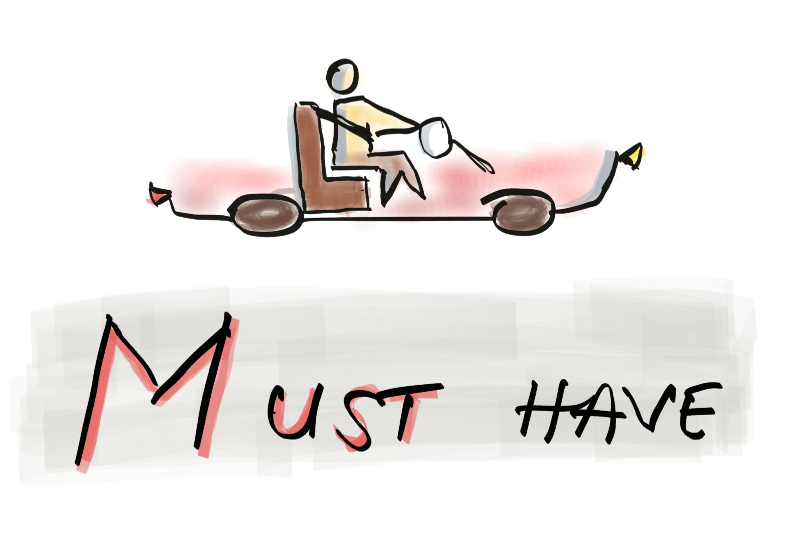MoSCoW
3 min
1+

The easiest method to effectively prioritze any backlog and scope a project: With love, from MoSCoW.
#1 Must Have
Add the most critical and urgent user stories to this category. Here you can include legal requirements, core functionalities, safety-related features such as e.g. Multi factor authentication if you’re working in finance or health tech.

Credit goes to Anca Onuta
#2 Should Have
Items which are important, but the effort of implementing them is considerable, or items you are not sure are necessary. These are feature which would be painful to leave out. They can be important bugs, relevant features such as a mood tracker if you build a online psychotherapy or a sending your documents to your doctor if you’re building an electronic health record.

Credit goes to Anca Onuta
#3 Could Have
Ideas which could add customer value but maybe not enough that you definitely want to add them now.

Credit goes to Anca Onuta
#4 Won’t Have
Ideas which are discarded for now. Maybe you consider including them in a future iteration. That’s why this category also is sometimes called “Would Have”.

Credit goes to Anca Onuta
How to apply?
Step 1
Categorize each feature according to the definitions above.
Step 2
Define which categories should be included in the scope of your upcoming iteration. E.g., if you’re building an MVP you can state that the scope includes only all Must Have features.
Be aware that Must Haves in an MVP can also be delighters (see KANO).
However, if you include more than one category into the scope, make sure you only add Should Have (and lower) features to the sprint once all Must Have made it into your sprint backlog.
What if you can’t decide which category a feature belongs to?
If you cannot decide which of two categories to add a feature, assign the feature to the lower category.
What do I put in the “Won’t Have” category?
The primary skill of a PO is to learn to say no. So, if you put features out of scope, ideally get them out of your backlog completely. This way your backlog won’t clutter. In case you really want to keep them, make use of an Icebox (see article).
Using MoSCoW as Roadmap
You can also use MoSCoW to depict a time horizon:
Must Have — first next major release
Should Have — second next major release. After the first release went live, the backlog items from this category become must-haves
Could Have — third next major release. After the go-live of the first release, the items from this category become should-haves after being re-evaluated.
won’t have this time — descoped

Credit goes to Anca Onuta
Further sources:
https://ancaonuta.medium.com/moscow-prioritisation-method-in-agile-b0446e68692c
Got questions, ideas or remarks on this method? Join the conversation on